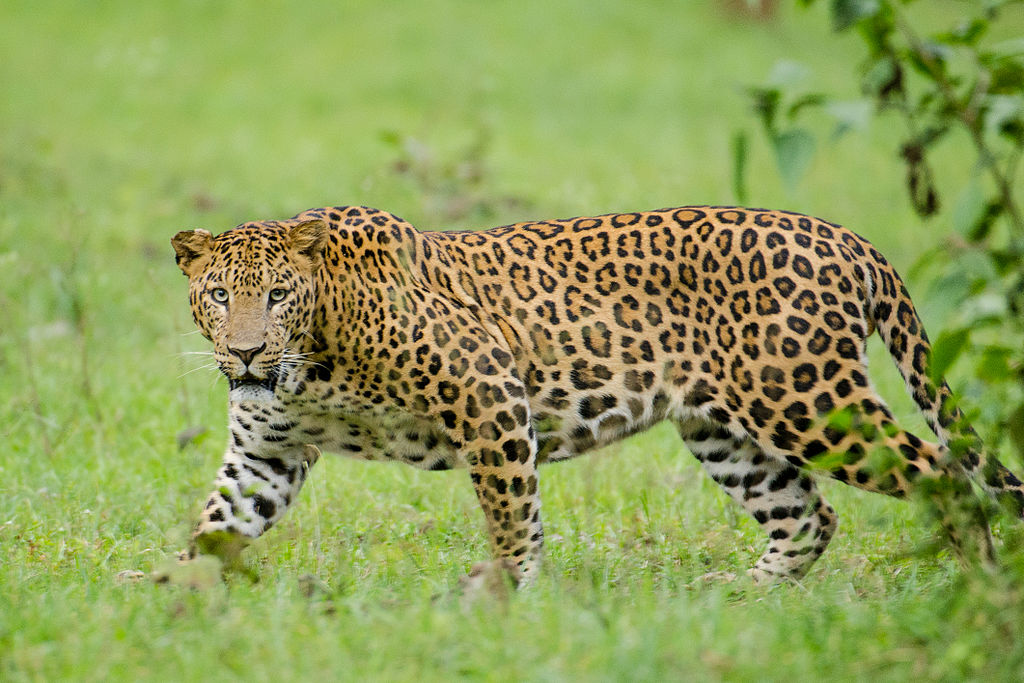Indian leopards (Panthera pardus fusca) are a subspecies of leopard found in India, Nepal, Bhutan, Bangladesh, and parts of Pakistan. They are medium-sized big cats with a distinctive coat pattern of rosettes and spots, which provides excellent camouflage in their natural habitat. Indian leopards are highly adaptable and can thrive in a variety of ecosystems, from tropical forests to arid regions. They are apex predators and play a crucial role in maintaining the ecological balance of their habitat. Unfortunately they are suffering from human-leopard conflict.
Human-leopard conflict is a major issue in India, particularly in the states of Maharashtra, Karnataka, and Uttarakhand, where leopard populations are relatively high. Leopards are one of the most adaptable and elusive big cats, and their ability to thrive in a range of habitats has resulted in their coexistence with humans in many parts of India. However, as human populations have increased and encroached on leopard habitats, incidents of human-leopard conflict have also increased. The reasons behind increased conflict will be discussed in this article.

Habitat Loss and Fragmentation
The loss and fragmentation of natural habitats are significant factors contributing to human-leopard conflict in India. With the rapid expansion of human populations, natural habitats are being destroyed to make way for human settlements, agriculture, and infrastructure. This forces leopards to move out of their natural habitats in search of food and water, often leading them to come into contact with humans.
Decreasing Prey Populations
Leopards rely on natural prey such as deer, wild boar, and monkeys for their survival. However, with the loss and fragmentation of natural habitats, the availability of natural prey has decreased. This has led leopards to venture into human settlements in search of food, making them more vulnerable to conflict with humans.
Illegal Wildlife Trade
The illegal wildlife trade is a significant factor contributing to human-leopard conflict in India. Leopards are hunted for their skin, bones, and other body parts, which are in high demand in traditional medicine and fashion industries. This creates a significant incentive for poaching, and as a result, leopard populations are declining rapidly.
Lack of Awareness and Education
Lack of awareness and education about leopards and their behavior is also a significant factor contributing to human-leopard conflict in India. Many people are not aware of the potential dangers of encountering a leopard, nor do they know how to respond to a leopard sighting. Additionally, people living in close proximity to leopard habitats often lack the knowledge and resources to secure their homes and livestock from leopard predation.
Increasing Human Populations
With the rapid expansion of human populations, natural habitats are being destroyed at an alarming rate. This is leading to an increased likelihood of leopards coming into contact with humans, as their habitats are being encroached upon by human settlements. Additionally, as human populations increase, the availability of natural prey declines, leading to an increased likelihood of leopards preying on domestic animals.
Retaliation Against Leopards
In some cases, conflicts between humans and leopards turn violent, with people retaliating against leopards that have killed their livestock or pets. This can further exacerbate human-leopard conflicts, as it creates a cycle of retaliation and violence.
Lack of Effective Management and Enforcement
Lack of effective management and enforcement of laws and regulations related to wildlife conservation is also a significant factor contributing to human-leopard conflict in India. Wildlife conservation efforts are often underfunded and understaffed, making it challenging to implement and enforce laws effectively.
Help us Help Them! Think Wildlife Foundation is a non profit organization with various conservation initiatives. Our most prominent campaign is our Caring for Pari intiative. Pari is a rehabilitated elephant at the Wildlife SoS Hospital. 25% of the profits from our store are donated to the elephant hospital for Pari. Other than buying our wonderful merchandise, you could donate directly to our Caring For Pari fundraiser.
Written by: Aryan Patel
